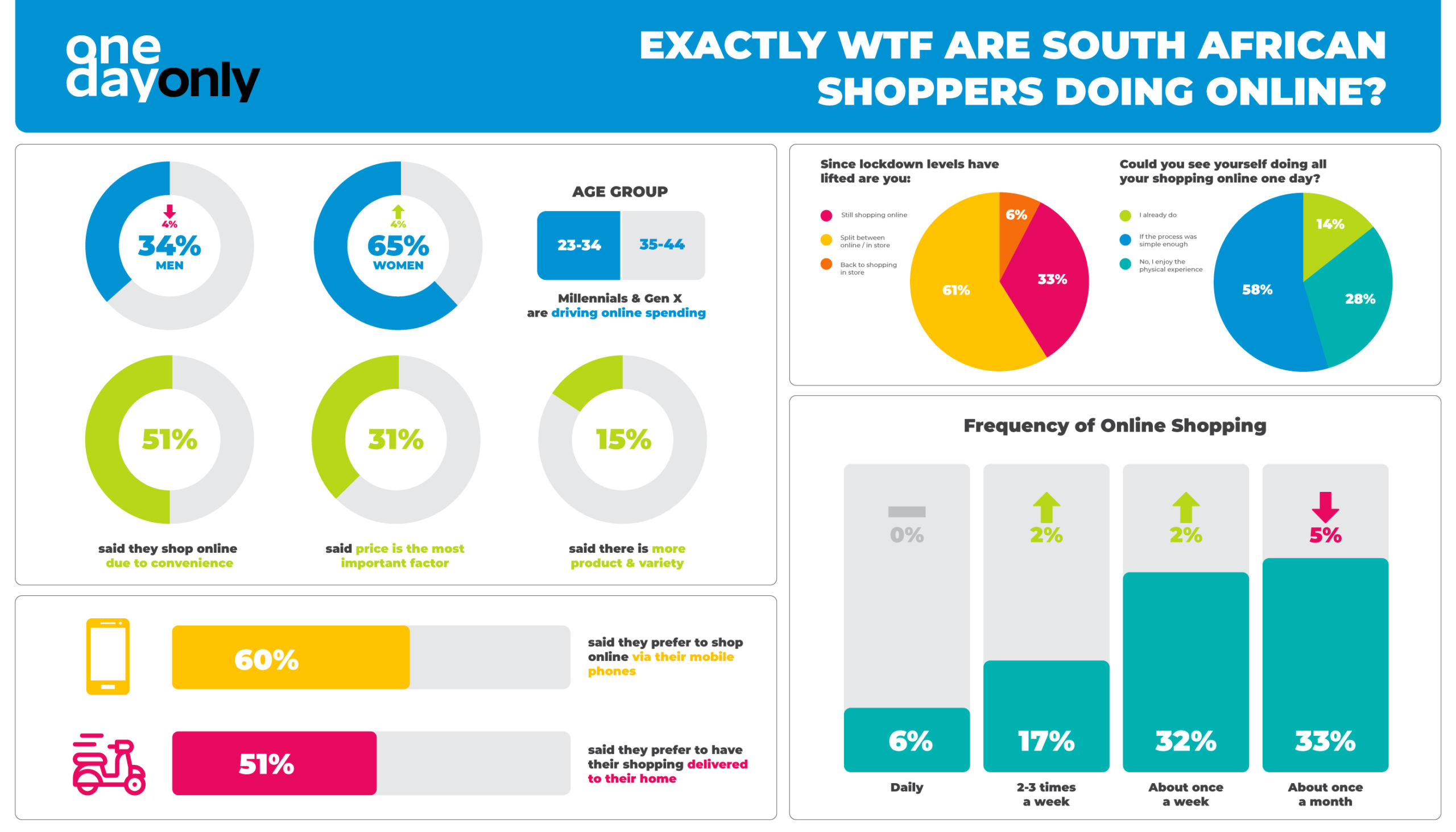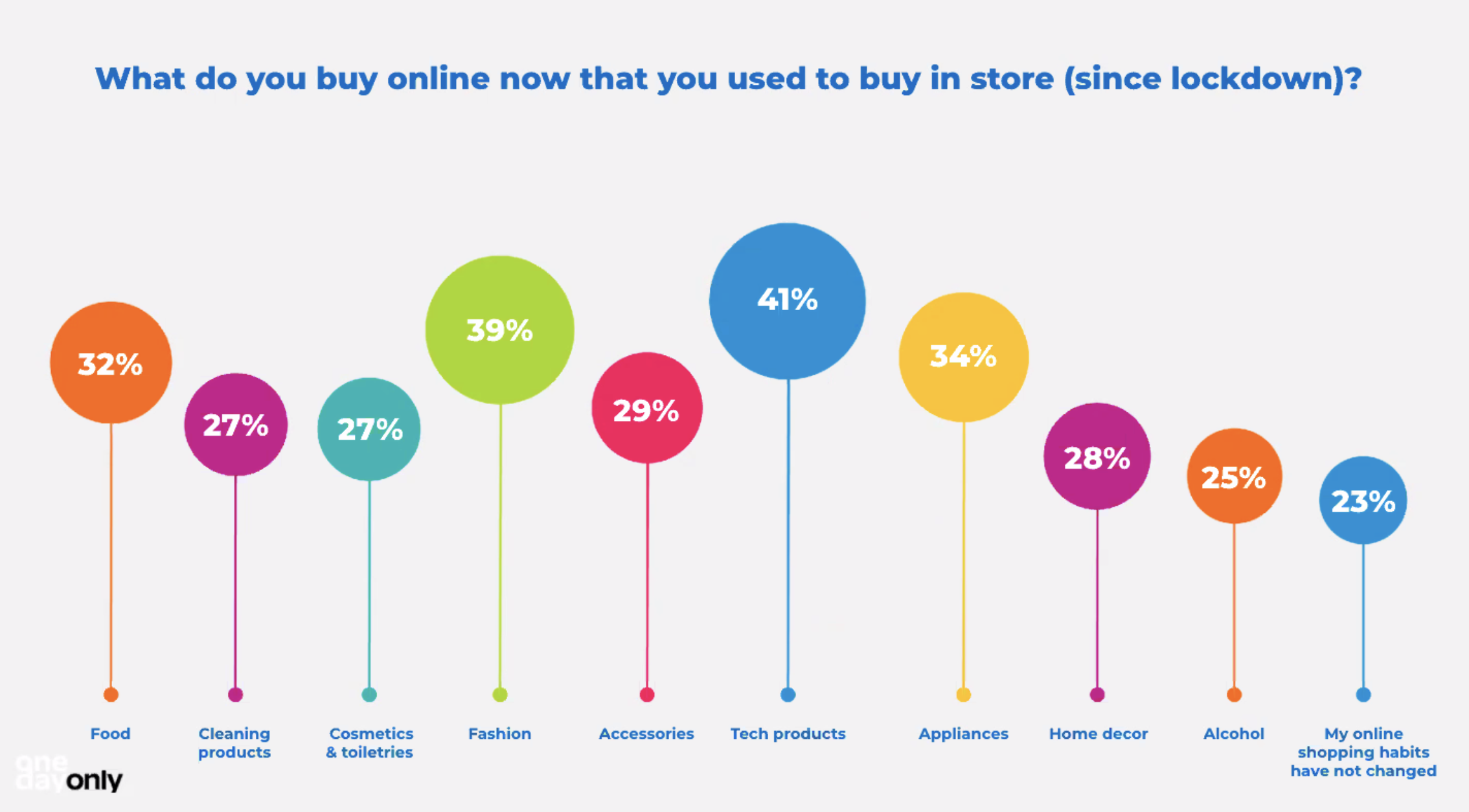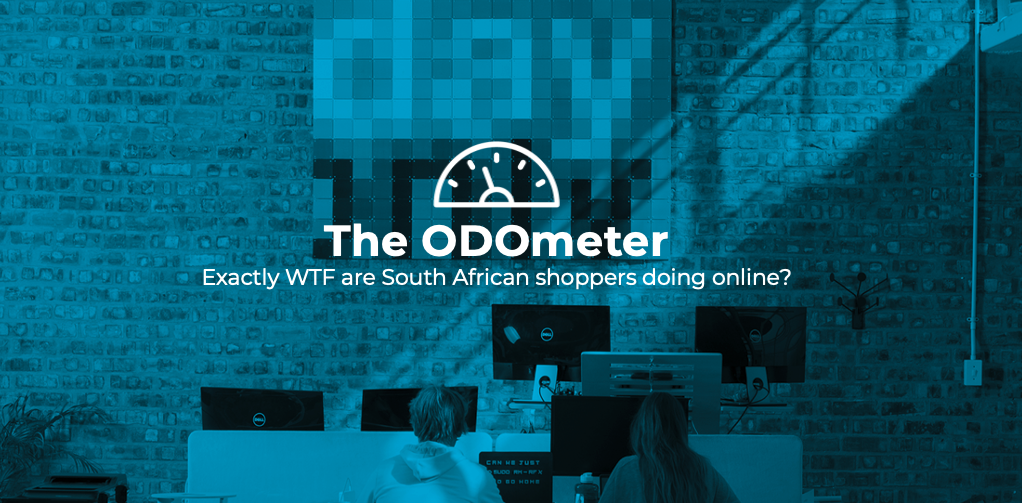South African e-tailer OneDayOnly published its annual ODOmeter report this morning, which details the online shopping behaviour of its customers. It’s the second instance of the ODOmeter index, and includes the results from research conducted in a group of around 9,000 respondents through OneDayOnly’s platforms
Even though the survey was conducted… ahem… online. We only have stats of South Africans who already conduct their business online. Of course, because of the small scale of the survey pool, this information is not indicative of the whole of South Africa’s online shopping habits. But it’s interesting nonetheless.
Read more: OneDayOnly sold a luxury apartment at a R150,000 discount
“The 25 – 34 year old age bracket is down 4% from the last ODOmeter, while the 35 – 44 and 45 – 54 age brackets are up 2% respectively. Although this may look like the younger age group is shopping less, it is possible that this could be linked to the effects of the long-term lockdown, and an indicator of the 35 – 54 year old bracket becoming more comfortable with making more frequent purchases online,” says Laurian Venter, director at OneDayOnly.
Our tech, monitored by their tech
 More interesting, however, is that OneDayOnly’s research details how tech is the most prominent category of products shopped online, sitting at 41%. When asked whether South Africans buy big-ticket tech products with cash or on credit, Venter says “Tech is where it’s at, and I think that tech shoppers are savvy shoppers.”
More interesting, however, is that OneDayOnly’s research details how tech is the most prominent category of products shopped online, sitting at 41%. When asked whether South Africans buy big-ticket tech products with cash or on credit, Venter says “Tech is where it’s at, and I think that tech shoppers are savvy shoppers.”
According to Jessica van der Westhuyzen, most people are buying big-ticket items in cash or on a credit card (which is a credit facility, but still). But more interestingly, OneDayOnly’s researchers hit up Google Search for South Africa to see what people are looking for.
“What we often do is look at top Google Search and list those deals the next day, and they’ll sell out. If you’re searching for it, you’ll have the money to spend on it,” van der Westhuyzen says.
 It’s true that tech users like to research, sometimes extensively, before settling on and buying a product. That’s… kind of why Stuff and similar platforms that offer professional guides on and reviews of tech products exist, right?
It’s true that tech users like to research, sometimes extensively, before settling on and buying a product. That’s… kind of why Stuff and similar platforms that offer professional guides on and reviews of tech products exist, right?




